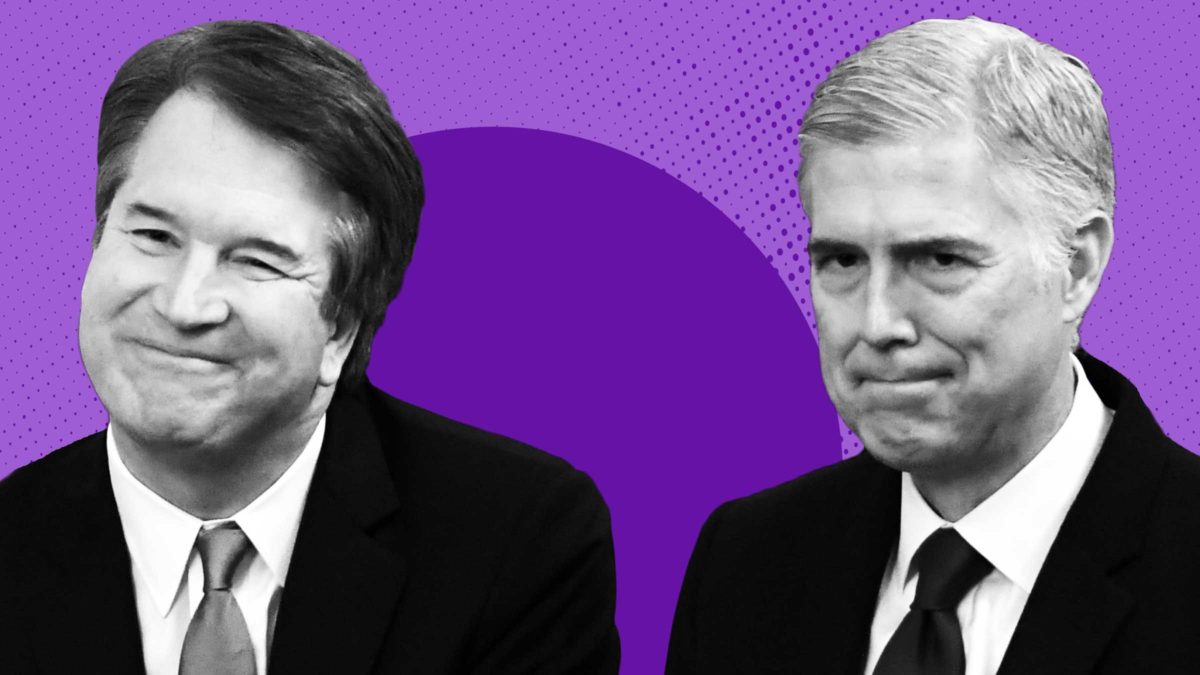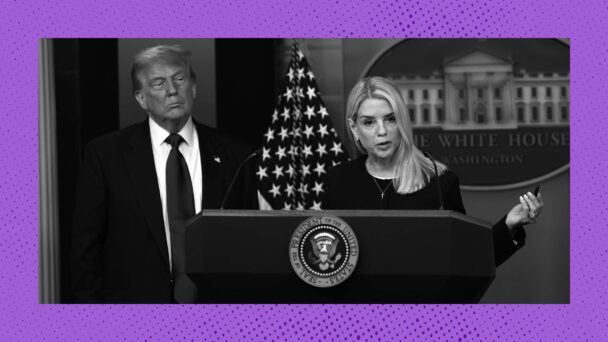Earlier this week, the Supreme Court addressed its bottomless supply of humiliating ethics scandals by issuing its first-ever code of conduct, albeit in the most petulant manner imaginable. The code, the justices wrote in a silly, pissy preface, is merely a “codification” of rules they have “long” followed, and aims to correct the “misunderstanding” that the justices “regard themselves as unrestricted by any ethics rules.” Put differently, widespread outrage at the revelation that Clarence and Ginni Thomas spend several weeks each summer living in the breast pockets of various billionaires is the unfortunate product of overwrought public ignorance.
As my colleague Madiba Dennie has written, easily the code’s most glaring omission is the fact that it can’t be enforced: For justices who unapologetically flout it, there are exactly zero consequences. But enforcement aside, the code’s substantive provisions are also the work product of a Court controlled by a six-justice conservative supermajority, whose members made very sure that the rules, such as they are, would not implicate the things they love doing most. I am not suggesting that Leonard Leo literally drafted this “code of conduct.” I am simply pointing out that if he had, I am not sure what about it would be different.
One section of the code, for example, spells out the circumstances under which a justice should—again, should, if they feel like being ethical that day—recuse themselves from a case. But the caveats render the suggestions that follow worthless: Justices are “presumed impartial,” the code declares, and ought to step aside only when their impartiality might “reasonably be questioned.” The code defines this maddening bit of passive voice to include situations in which “an unbiased and reasonable person who is aware of all relevant circumstances would doubt that the Justice could fairly discharge his or her duties.”
I am sure this will shock you, but the justices’ conception of whose “doubts” are sufficiently “unbiased and reasonable” to merit recusal is remarkably narrow: Basically, if neither a justice nor a member of their family has a personal or financial stake in a specific case, they’re free to cast a vote with an unburdened conscience. This standard does nothing to limit, say, Sam Alito’s defiant refusal to recuse from an upcoming case in which one of the lawyers conducted an on-the-record interview of Alito for a bootlicking profile headlined “Samuel Alito, the Supreme Court’s Plain-Spoken Defender.” You, a normal person, might “reasonably” wonder if Alito can “fairly discharge his duties” in light of these facts. According to the Court, however, you are simply unaware of “relevant circumstances,” which are, I guess, that Sam Alito pinky-promises to forget all about which advocate made his shoes shine so brightly.
In a section about avoiding the “appearance of impropriety,” the code urges justices to refrain from “knowingly lend[ing] the prestige of the judicial office” to further their own interests, and from “knowingly convey[ing] or permit[ting] others to convey the impression that they are in a special position to influence the Justice.” This sounds straightforward enough: Don’t trade on your title, or let others do the same. But as The Economist’s Steven Mazie noted, the addition of “knowingly” is a conspicuous departure from the code on which the Court’s version is based, and gives the justices a ton of leeway to assert dubious claims of plausible deniability. Would Leonard Leo and Harlan Crow have put so much money in Ginni Thomas’s pocket if Clarence Thomas weren’t her husband? Would Clarence Thomas’s hilariously rich friend have lent him the cash to buy a quarter-million-dollar luxury RV, and then quietly forgiven the loan, if he weren’t a Supreme Court justice? Who can say, really!
I’ve found an important difference between Canon 2(b) of the Code of Ethics for lower-court judges (left) and SCOTUS’s new code (right). Can you spot it? pic.twitter.com/PAKDy66lVo
— Steven Mazie (@stevenmazie) November 13, 2023
Maybe the most obviously reverse-engineered portion of the code deals with extrajudicial activities—speaking, writing, teaching, and so on. When deciding whether to make a public appearance, justices are to “consider whether doing so would create an appearance of impropriety in the minds of reasonable members of the public.” This might be the closest it comes to acknowledging that the perspective of the people whose lives are subject to the justices’ power, rather than the justices themselves, is what matters. Again, though, the caveat comes faster than you can think the words “Federalist Society”: “No such appearance will be created,” the code explains, when speaking before “a non-partisan scholarly or cultural group.”
Again, this provision has a veneer of sensibility: Who would quibble with a justice’s gracious decision to lend their time to civic pursuits? The challenge is that the six conservatives have a favorite “non-partisan scholarly or cultural group,” and it is the Federalist Society, before which every single conservative justice has given a keynote address of some sort—perhaps most memorably Alito, who in 2020 delivered a bizarre, grievance-laden screed that would not be out of place on a Fox News streaming program. Again, context matters: In the real world, FedSoc operates as the Republican Party’s judicial policymaking arm, and membership is table stakes for any mediocre reactionary who aspires to a seat on the bench. Because FedSoc publicly casts itself as a non-partisan debate club, though, the code effectively protects Neil Gorsuch’s sacred right to don a bow tie next time FedSoc conclave rolls around.
Perhaps it is not a surprise that nine people who are mostly tired of Washington Post columnists writing mean things about them riddled their unenforceable rules with more holes than the Bruen test. But these generous carve-outs are doubly insulting because they are tailored to the very acts and omissions that gave rise to the Court’s waning trust, blessing decades-long exhibitions of lawlessness with the imprimatur of judicial ethics.
The document’s purpose is to empower Thomas and Alito and company to keep cranking out reactionary opinions for as long as possible, and nothing more. It is not a code of conduct. It is a declaration that the justices never did anything to merit one in the first place.




